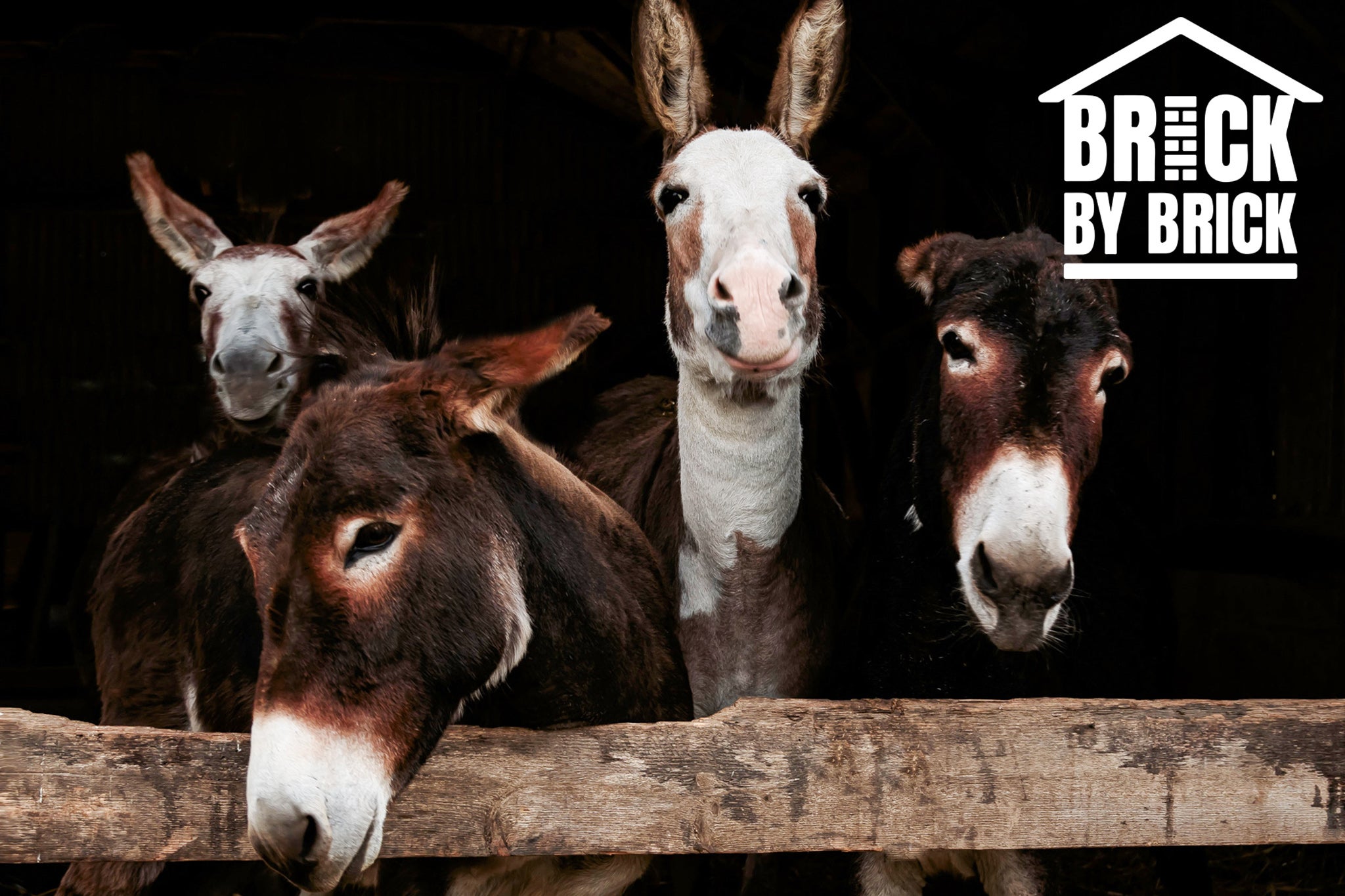Donkey charity receives more donations than four leading domestic abuse charities combined
Exclusive: Domestic abuse charities Women’s Aid, Refuge, IDAS and SafeLives together raised far less money through donations than The Donkey Sanctuary, figures show

A donkey welfare charity received more donations in a single year than four leading domestic abuse charities combined, new figures show.
Data from the Charity Commission register reveals that four domestic abuse charities – Women’s Aid, Refuge, IDAS and SafeLives – together raised far less money through donations than The Donkey Sanctuary.
The four domestic abuse charities received a total of £11.3m during the 2022-2023 financial year, while The Donkey Sanctuary was the recipient of £51.7m in 2022.
The statistics emerged as The Independent joined up with the charity Refuge in an effort to raise £300,000 to build a safe house for survivors of domestic abuse, as part of the Brick by Brick campaign.
Be a brick, buy a brick and donate here or text BRICK to 70560 to donate £15
Ikram Dahman, from Refuge, said: “Cases of violence against women and girls (VAWG) are devastatingly common – on average, one woman is killed by an abusive partner or ex every five days in England and Wales, and one in four women will experience domestic abuse in their lifetime.
“But for VAWG services like Refuge, insecure and insufficient funding is putting increased pressure on a sector that is experiencing extremely high demand.”
Refuge is the largest provider of shelters for domestic abuse victims in England. Ms Dahman said continuous economic strain makes it increasingly difficult for frontline service providers to respond to surging demand.
While the British public are very generous, organisations need media attention to raise funding. Even with more willingness to talk about domestic violence, which we have seen in recent years, we still haven’t seen much more money going into the sector
She warned that many services for domestic abuse victims are currently at “breaking point” as she argued that misconceptions of violence against women and girls and domestic abuse remain prevalent.
“One of those is the tendency to blame the survivor as a way of making excuses for abuse,” she explained. “However, we must remember that there is only one person to blame for abuse – and that is the abuser.
“All survivors deserve support, and Refuge is committed to helping as many women and their children as possible rebuild their lives, while working to debunk harmful societal attitudes towards domestic abuse survivors.”
Angela Kail, from think tank New Philanthropy Capital, a charity dedicated to improving the social sector, said: “These statistics show how difficult domestic violence charities find it to raise money.
“While the British public are very generous, organisations need media attention to raise funding. Even with more willingness to talk about domestic violence, which we have seen in recent years, we still haven’t seen much more money going into the sector.”
For violence against women and girls services like Refuge, insecure and insufficient funding is putting increased pressure on a sector that is experiencing extremely high demand
Emma Armstrong, chief executive of I Choose Freedom, which runs 12 domestic abuse refuges across Surrey, argued that the data suggests people do not take domestic abuse seriously enough.
She said: “I think people very naively believe the stereotype and myth that domestic abuse doesn’t happen in their local area to people they know.
“A lot of people think it only happens to certain people – they think it happens to lower-class people who are vulnerable, who have mental health issues, and those with low self-esteem. They think ‘It wouldn’t happen to me or anyone I know.’”
But Ms Armstrong emphasised that domestic abuse can happen to anyone, regardless of their “gender, age, social background, upbringing, race, and mental health status”.
Please donate now to the Brick by Brick campaign, launched by The Independent and charity Refuge, to help raise £300,000 to build a safe space for women where they can escape domestic abuse, rebuild their lives and make a new future. Text BRICK to 70560 to donate £15
The national domestic abuse helpline offers support for women on 0808 2000 247, or you can visit the Refuge website here. There is a dedicated men’s advice line on 0808 8010 327
Bookmark popover
Removed from bookmarks